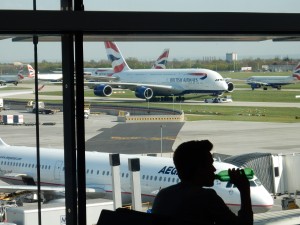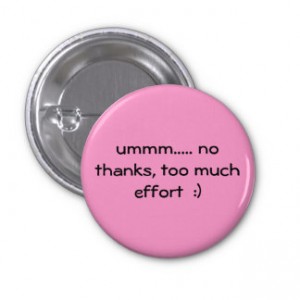The future of airline passenger experience
The last two years have seen big steps forward in the airline passenger experience. Some airlines doing great things in the name of creating a sustainable business. Others appear to be wedded to a get-rich-quick strategy. So it’s not surprising that some have customers who help spread the good word while others feel they are been treated with contempt.
But both make money, so which is more important – long-term survival or short-term P&L? Different strategies for different airlines, but there is one common thread that is treated very differently: people. Or as they are known in some circles,“revenue generators”.
Last week I had the pleasure of once again being part of Terrapinn’s World Low Cost Airline Congress. That the name of the event evolved this year into the Aviation Festival is testament to huge shifts within the industry even in the very recent past.
Only two years ago the mood in the airline sector appeared dark. It was distracted by existential challenges of economic pressures, merger activity and geopolitical forces. Few were talking about customers let alone measuring what is was like to be one. The focus remained on process efficiency, cost and short-term survival.
Forward a year and 2014 felt more positive. It seemed that every conversation and presentation now contained reference to people, passengers or customers. Yet while something customery needed to be done, it wasn’t entirely clear exactly what or how.
This year though, things moved on again with airlines and suppliers embracing the concept of passenger experience. Maybe a more stable economy and lower fuel prices have helped move the spotlight. But, so the theory goes, by aligning the business strategy, operations and partners with what customers value most, passengers will come back next time, spend more and tell their friends to do the same.
For airlines passenger experience is a sound business philosophy, neatly illustrated by two of the industry’s heavy-hitters.
Forward thinking for forward bookings
Ryanair has won awards for its “Always Getting Better” programme. In a move unthinkable until very recently, Michael O’Leary put passenger experience at the top of his agenda when delivering the latest financial results to the markets. And CMO Kenny Jacobs talked last week about the focus on passengers going beyond an initiative to become a lasting cultural ethos. It will move Ryanair from, in his words, being the baddest to the biggest and best. Letting others make mistakes gives the airline what Jacobs, with a mischievous smile, calls its 4th-mover advantage.
It’s fair to say that over at Virgin Atlantic, they have enjoyed a longer history of benefiting from doing what customers appreciate. That’s not to say they are taking their foot off the gas. Moving on from using Google Glass to enhance its experience for Upper Class passengers, the airline’s dispatch team are using smart-watches to improve efficiency of turn-around times and communication with customers.
They embody the test-learn-refine approach, happy to see where a new piece of technology might lead them. If it’s down a dead-end route, so be it but without that culture they will have no foundation upon which to differentiate their experience or operations.
So in contrast to those who are doing some great things with culture and experiences, it was still a surprise to hear one airline doggedly beating the ‘grab every penny’ drum. To name them will serve little purpose but you will know them. I admire any organisation who has a clarity of proposition, though the explanation of their strategy sits less comfortably. To quote one of their senior executives: “We don’t look at what customers want. We look at what they are prepared to pay for”.
Least-cost processes and inflexible policies are then built rather than experiences. Meals (when paid-for) appear to meet approval but passenger feedback suggests that is a superficial and money-making priority compared with the things that should be a priority: long queues at check-in, dirty aircraft and unfriendly staff.
This airline and many suppliers talk of passenger experience because it seems to be the fashionable thing to do rather than be a way of thinking. The reality is that they already give their passengers an experience but because the driving forces remain revenue per passenger, operational efficiency and spreadsheets full of metrics, those experiences – whether deliberate or unintended – are not the ones that win favour.
Are they getting in their own way? Maybe it’s a deliberate, successful short-term strategy of survival and they will worry about next year, next year. Or will they see the balance that Ryanair are working towards as something to emulate?
Only they know the strategy, but passengers know what they’ll do next time.
What do passengers say to each other?
I’ve recently conducted some research into what passengers say to each other about airlines. Increasingly, whatever we are buying, we look to see – and are influenced by – what the experience of other customers has been. It’s no different when we choose which airline to fly with.
For this sector though, one factor shone through as being the biggest single reason why passengers rave about a particular airline or warn others to give them a wide berth; people.
Whether a positive or negative experience, a third of passengers cited the attitude and helpfulness of people as the reason for the good or poor experience. In the positive camp, it was all about the cabin crew, attentive and friendly. When things went wrong however, it was people outside the aircraft who were at the root of the problems – ground crew, contact centres and service desks. As passengers, we do not know nor do we care whether those roles are in-house or sub-contracted out. Whatever the clever strapline says, it’s the airline’s brand in their hands.
The future is already here
David Rowan, Editor of Wired magazine, proved at this year’s event that the future is not something that we can wait until tomorrow to get ready for. Flying cars exist today. Astronauts in the International Space Station are emailed instructions to make tools they didn’t know they’d need by using an onboard 3D printer. And tetraplegics can use brainwaves to guide a robot to help them drink.
Yet in 2015 we still have airlines with grumpy employees, slow and inflexible processes and scruffy aircraft. Other markets outside aviation are moving fast and they are the ones who set our expectations as passengers about what a good experience should be like. It doesn’t have to be “wow” or expensive; if it’s empathetic it will be profitable.
There is clearly of a sense of optimism about the future for the industry and there are many airlines doing great things. It’s a future that will be no less challenging but one where a genuine focus on passenger experiences will help secure a stronger future for load factors, revenue and forward bookings.
So for those who still don’t get it, beware the economic upturn because that will simply prise open the gap even further between the airlines that keep passengers, partners and investors coming back and those who simply run out of options. And passengers.
Thank you for your interest in this post about PaxEx. I share these thoughts simply in the hope it will stimulate some thought about the consequences (intended and unintended) of how your business treats its own customers or helps others with their customers.
I’m Jerry Angrave, a Certified Customer Experience Professional, independent consultant and authorised trainer for the CCXP accreditation. As founder and managing director of Empathyce, I’ve worked for or with organisations in the aviation and travel, retail banking, utilities, legal services and pharmaceutical industries across Europe and in New Zealand.
If you’ve any question on the post or on customer experience in general, please feel free to get in touch. I’m on +44 (0) 7917 718072 or by email at [email protected].

Leave a Reply
Want to join the discussion?Feel free to contribute!